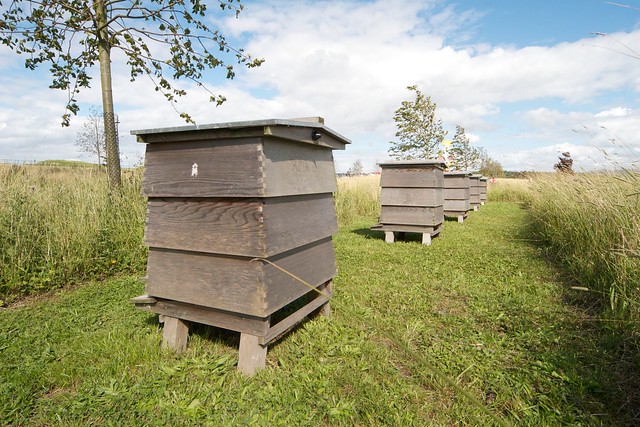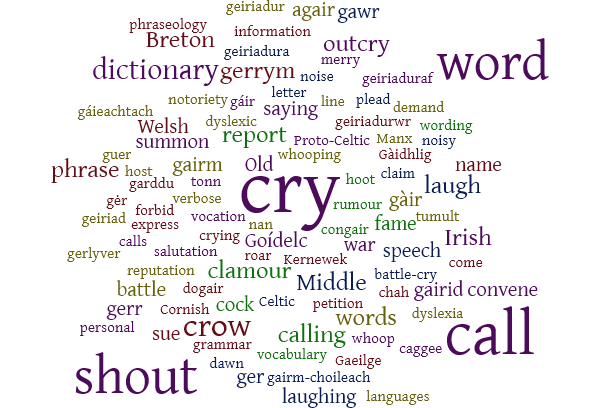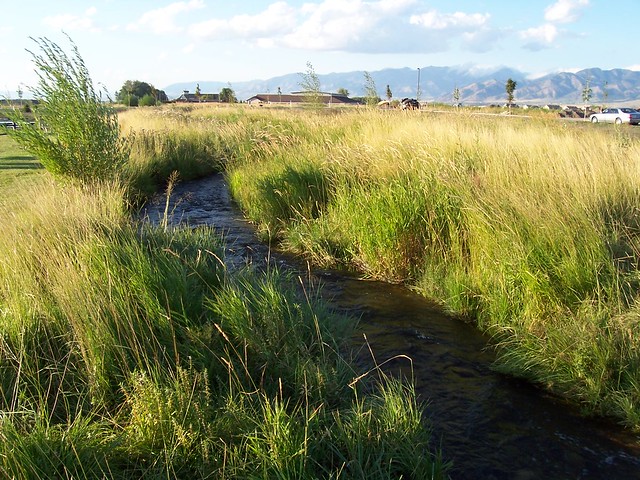Words for bark, beehives and related words in Celtic languages.
| Proto-Celtic | *ruskos = bark, beehive |
|---|---|
| Gaulish | rusca / ruskā = bark, beehive |
| Old Irish (Goídelc) | rúsc [ruːsk] = (tree) bark, basket, covering |
| Irish (Gaeilge) | rúsc [ɾˠuːsˠk] = (tree) bark, vessel made of bark rúscach = bark-like; rough, wrinkled (skin) rúscán = strip of bark, vessel made of bark, kind of seaweed |
| Scottish Gaelic (Gàidhlig) | rùsg [r̪ˠuːsg] = (tree) bark, peel, rind, husk, crust, fleece rùsg-caorach = sheep’s fleece rùsg-abhaill = apple peel rùsg na Talmhainn = crust of the Earth rùsgan [r̪ˠuːsgan] = thin (tree) bark, thin peel/rind/husk, thin crust, small fleece, bark boat rùsgach = fleecy |
| Manx (Gaelg) | roost [ruːst] = peel, bark, rind roostey = strip, peel, hull, rob, bare, rind, debunk, rifle, unbark, deprive, peeling, exposure |
| Proto-Brythonic | *rrisk = bark |
| Middle Welsh (Kymraec) | risgl, risg, rhisg, risc = bark |
| Welsh (Cymraeg) | rhisg(l) [ˈr̥ɪsɡ(l)/ˈr̥ɪsɡɪ(l)] = (piece of) bark, rind, peel (of fruit) husk (of grain) rhisg(l)ach = pieces of bark rhisgen = (bark) dish or pan rhisglen = (piece of) bark, rind; hackle, flax comb rhisgl(i)af, rhisgaf, rhisgl(i)o, rhisgo = to bark, decorticate, peel (off), develop bark (on), encrust rhisg(l)aidd = having bark or rind, corticate(d), covered with bark |
| Old Cornish | rusc = bark |
| Middle Cornish | risc = bark |
| Cornish (Kernewek) | rusken = bark, peel ruskek = rough-barked |
| Middle Breton | rusquenn = beehive |
| Breton (Brezhoneg) | rusk = bark, peel, zest ruskek = rough, rugged, coarse ruskenn = (bee)hive, apiary ruskennad = beehive ruskenner = beehive maker |
Etymology: from the Proto-Indo-European *h₃rewk- (to dig up), possibly from *h₃er- (to move, stir) [source].
The French word ruche (beehive, ruffle, flounce) and the Catalan word rusc (beehive) come from the Gaulish root rusca, via the Late Latin rusca (bark), and the English word ruche (pleated fabric, ruff), and the German word Rüsche (ruffle, ruche) were borrowed from French [source].
Words marked with a * are reconstructions.
Sources: Wiktionary, Am Faclair Beag, Online Manx Dictionary, Teanglann.ie, eDIL – Electronic Dictionary of the Irish Language, logainm.ie, In Dúil Bélrai English – Old Irish glossary, Geiriadur Prifysgol Cymru, Gerlyver Kernewek, Dictionaire Favereau, TermOfis, English – ProtoCeltic WordList (PDF), Etymological Dictionary Of Proto Celtic













